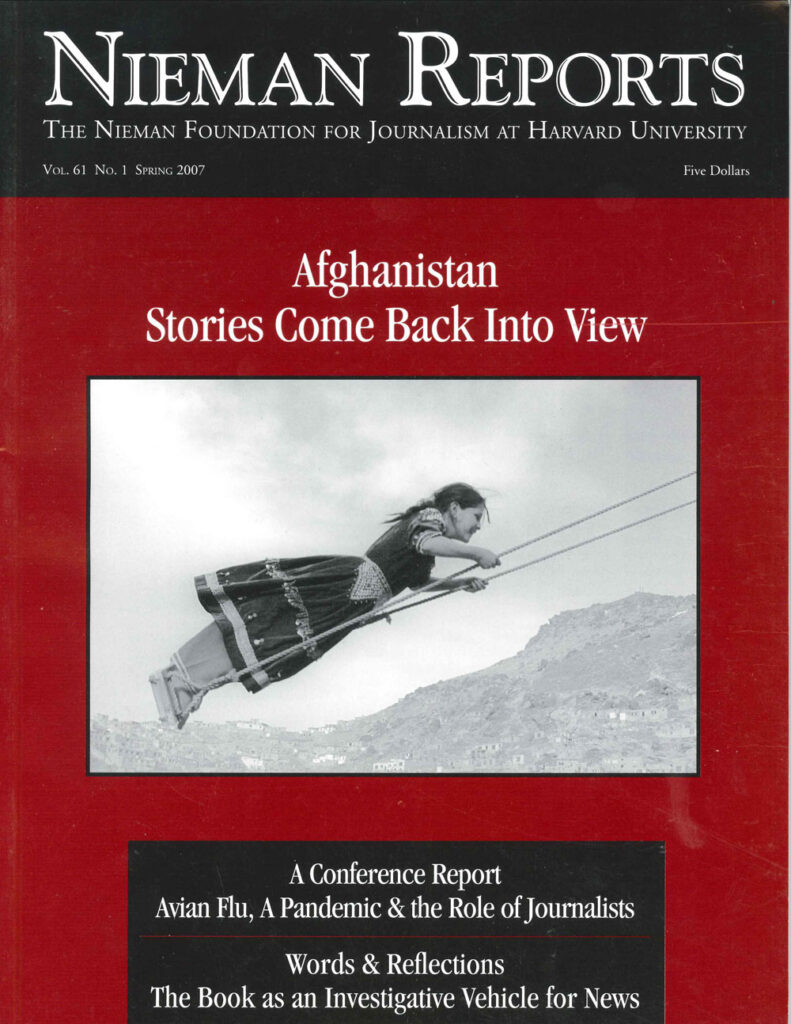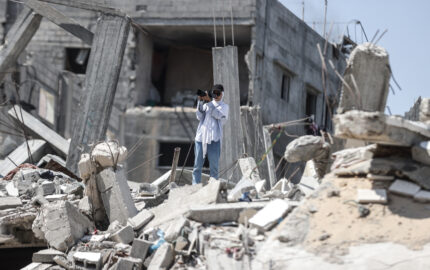Introduction by Travis Beard, chief editor of Aïna Photo
To see Afghanistan through the eyes of Afghan people is Aïna Photo's greatest ambition. Aïna Photo is the first Afghan photojournalism school and agency. Based in Kabul, it offers to the Afghan community.... Read article
Fardin Waezi
I learned photography in my father's studio in Kabul. Under Taliban rule I was arrested five times for "photograph related crimes" and for cutting my beard. I taught the first course at Aïna Photo, teaching students how to use the box camera. I want to show my country's beauty, and I want to reflect Afghan society through pictures. Now 25, I work in the Aïna Photo department as manager of facilities and also do freelance jobs for the Aïna Photo agency. enter gallery
Gulbuddin Elham
I was forced to postpone my studies at Kabul University's school of journalism during the Taliban era. Now I am 30 years old, and I have three children. I chose the career in photography because I believe that photos are a record of history, and I want to be part of that. I now work full-time as a freelance photographer for Aïna Photo, shooting everything from ministers to tanks. enter gallery
Najibullah Musafer
When I joined Aïna Photo, I was its oldest member (at 40), and I probably still am. I was the only person to successfully film a documentary on the Taliban among the Hazara minority located in central Afghanistan. I spent seven months in prison for "photograph related crimes." Had the Taliban discovered my film, I would have certainly been sentenced to death. I am now working as deputy assistant editor and photographer for two weekly Afghan magazines, Kallid and Morsell. Kallid focuses on current affairs, while Morsell is a magazine that explores women's issues in post-Taliban Afghanistan. enter gallery
Safya Saify
I started a photography career in my university course of social science, where I focused on projects about women's issues. The World Bank then offered me a scholarship to study technical aspects of photography. Now I had the thirst for photography, so I joined Cardon University where I studied it full-time. Then I was selected to join the one-year course in photojournalism at Aïna Photo. Now I work there as a freelance photographer and started the first net-café for women in Kabul University. enter gallery
To see Afghanistan through the eyes of Afghan people is Aïna Photo's greatest ambition. Aïna Photo is the first Afghan photojournalism school and agency. Based in Kabul, it offers to the Afghan community.... Read article
Fardin Waezi
I learned photography in my father's studio in Kabul. Under Taliban rule I was arrested five times for "photograph related crimes" and for cutting my beard. I taught the first course at Aïna Photo, teaching students how to use the box camera. I want to show my country's beauty, and I want to reflect Afghan society through pictures. Now 25, I work in the Aïna Photo department as manager of facilities and also do freelance jobs for the Aïna Photo agency. enter gallery
Gulbuddin Elham
I was forced to postpone my studies at Kabul University's school of journalism during the Taliban era. Now I am 30 years old, and I have three children. I chose the career in photography because I believe that photos are a record of history, and I want to be part of that. I now work full-time as a freelance photographer for Aïna Photo, shooting everything from ministers to tanks. enter gallery
Najibullah Musafer
When I joined Aïna Photo, I was its oldest member (at 40), and I probably still am. I was the only person to successfully film a documentary on the Taliban among the Hazara minority located in central Afghanistan. I spent seven months in prison for "photograph related crimes." Had the Taliban discovered my film, I would have certainly been sentenced to death. I am now working as deputy assistant editor and photographer for two weekly Afghan magazines, Kallid and Morsell. Kallid focuses on current affairs, while Morsell is a magazine that explores women's issues in post-Taliban Afghanistan. enter gallery
Safya Saify
I started a photography career in my university course of social science, where I focused on projects about women's issues. The World Bank then offered me a scholarship to study technical aspects of photography. Now I had the thirst for photography, so I joined Cardon University where I studied it full-time. Then I was selected to join the one-year course in photojournalism at Aïna Photo. Now I work there as a freelance photographer and started the first net-café for women in Kabul University. enter gallery



